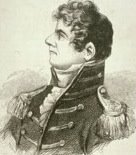Rowan Williams, apophaticist
The interested who might have a moment or two during Holy Week (a spell between Maundy Thursday and choral evensong on Easter Sunday, say) can feel free to thumb through a slender new volume of essays that help us to navigate and find discernible landmarks, "inside the mind of the Archbishop of Canterbury, Rowan Williams, Britain's most impressive theological virtuoso." (This, according to the review of the new volume in the Times Literary Supplement.)
The book, Wrestling with Angels: Conversations in Modern Theology, is reviewed favorably there.
The new volume covers pieces Williams wrote only between 1978 and 1998, dates which are significant in the life of the Anglican Communion and in the career of Rowan Williams.
Those years saw major Prayer Book revisions, the first female bishops (priests, in some nations) and the growing prominence of African Anglicans, notably Archbishop Tutu in South Africa.
Williams writings and thought during this period, reflected these developments and indeed, laid intellectual and theological groundwork for them. Into 1998 and even through his elevation to the seat of Cantaur, Williams often wrote and spoke eloquently, about an expansive, generous orthodoxy rooted in the diverse voices and traditions, of Scripture itself. Doing this is how he made his reputation.
Regularly working against this very history of himself, is how he has come to be identified since his elevation.
The book itself mirrors this intellectual and pastoral 180 degree turn, cutting off anything post Lambeth 1998, a time—our time—when the very abstractions teased out and expounded upon from 1978 to 1998, have become concrete realities needing to be defended, given pastoral care, and recognized for always being at the foot of the Cross.
Here is how the TLS describes the significance of the essays in the new book, and the cutoff for dates:
The period between 1978 and 1998, when Williams expounded and help nurture an expansive Gospel, is seen as an intellectual exercise.
The period after this—our here and now—when the exercises can be put into practice and defended? Silence. The book snaps shut.
The TLS review is a fine one. It can be read in its entirety here.
The book, Wrestling with Angels: Conversations in Modern Theology, is reviewed favorably there.
The new volume covers pieces Williams wrote only between 1978 and 1998, dates which are significant in the life of the Anglican Communion and in the career of Rowan Williams.
Those years saw major Prayer Book revisions, the first female bishops (priests, in some nations) and the growing prominence of African Anglicans, notably Archbishop Tutu in South Africa.
Williams writings and thought during this period, reflected these developments and indeed, laid intellectual and theological groundwork for them. Into 1998 and even through his elevation to the seat of Cantaur, Williams often wrote and spoke eloquently, about an expansive, generous orthodoxy rooted in the diverse voices and traditions, of Scripture itself. Doing this is how he made his reputation.
Regularly working against this very history of himself, is how he has come to be identified since his elevation.
The book itself mirrors this intellectual and pastoral 180 degree turn, cutting off anything post Lambeth 1998, a time—our time—when the very abstractions teased out and expounded upon from 1978 to 1998, have become concrete realities needing to be defended, given pastoral care, and recognized for always being at the foot of the Cross.
Here is how the TLS describes the significance of the essays in the new book, and the cutoff for dates:
....[P]ieces – all originally published between 1978 and 1998 – that deal directly with the thought of modern philosophers and theologians, and that therefore might be described as exercises in philosophical or systematic theology (as opposed, say, to historical theology, another field in which Williams has long distinguished himself). This sort of approach suits Williams well. He is not a theologian who has ever attempted to develop a “system” of his own, or to establish a particular school of theology within the greater theological world, or to enucleate a set of basic principles by which then to determine where and how other thinkers ought to be situated within his own thought. Rather, what he does extremely well is to “think along” with the author whose work he is considering, to measure the strengths of that author’s ideas, to seek out certain of the subtler currents within those ideas, and to identify what can and should be criticized therein.
The period between 1978 and 1998, when Williams expounded and help nurture an expansive Gospel, is seen as an intellectual exercise.
The period after this—our here and now—when the exercises can be put into practice and defended? Silence. The book snaps shut.
The TLS review is a fine one. It can be read in its entirety here.


0 Comments:
Post a Comment
<< Home